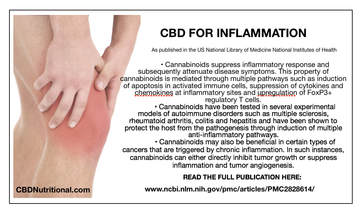|
This just boggles my mind. Why doesn't it work for everyone? If we all have and endocannibinoid system and receptor sites why? Is there damage, are the receptors clogged and not talking with the brain? If so what is the clog? Environmental toxins? Diet? Pharmaceuticals? I really want to know what this is. It is usually someone claiming to have fibromyalgia, who have had numerous surgeries. Is it anesthesia? Okay, this may be a bit odd, but I really want to understand this, so I ask a psychic medium for help. She told me the following: 1) That 20+% will not get relief from anything--that it is a karmic obligation! 2) 79% can get relief with energy work, reiki, laying on of hands, very gentle touch with an application of oil will put a "layer between them and the world". 4) That their nerves are stripped and this may be an identity psychological pattern to be released, (they feel emotionally ripped off). 5) They require stillness, quiet, peaceful environment, rest, chemical free environment and non-restrictive clothing. 6) Gentle detox protocols and very light EFT, essential oils and CBD would be beneficial.
I would love for all my fibromyalgia suffers to give our topicals a try as I have been getting good results with CBD interacting with CB1 receptor sites within the skin. Much gratitude to TK for her insights of fibromyalgia and CBD.
0 Comments
CBD really works on anxiety! One is not sleepy, high or incapacitated in anyway. Actually, I am more productive as I am very focused, and clear on what needs to be done. Calm cool and collected feels oh so good. You just gotta try it to know how it will work for you. Here are few findings I located on a google search.
A small 2010 study found that cannabidiol could reduce symptoms of social anxiety in people with social anxiety disorder (SAD). Brain scans of participants revealed changes in blood flow to the regions of the brain linked to feelings of anxiety. In this study, cannabidiol not only made participants feel better but also changed the way their brains responded to anxiety. A 2011 study also found that cannabidiol could reduce social anxiety. For that study, researchers looked specifically at cannabidiol to treat anxiety associated with public speaking. Research published in 2014 found that CBD oil had anti-anxiety and antidepressant effects in an animal model. A 2015 analysis of previous studies concluded that CBD oil is a promising treatment for numerous forms of anxiety, including social anxiety disorder, panic disorder, obsessive-compulsive disorder, generalized anxiety disorder, and post-traumatic stress disorder. The report cautioned, however, that data on long-term use of CBD oil is limited. While research strongly points to the role of cannabidiol in treating short-term anxiety, little is known about its long-term effects, or how it can be used as a prolonged treatment. In my case, I have been using CBD for over 4 years now, and feel as if CBD has eliminated all anxiousness. I no longer take CBD for anxiety reasons. Except when I travel on the freeway and that is when I take a few inhalations on my vape pen and almost instantly I am stress free, no more white knuckle drive syndrome and I believe I am actually more focused and visually see "outs" in traffic. I would highly recommend CBD if experiencing stress and or anxiety. A 2016 case study explored whether cannabidiol could reduce symptoms of post-traumatic stress disorder (PTSD) and anxiety-provoked sleep disorder in a child with a history of trauma. Researchers found that cannabidiol reduced the child's anxiety and helped her sleep. http://journals.sagepub.com/doi/abs/10.1177/0269881110379283https://link.springer.com/article/10.1007/s13311-015-0387-1  Many who want to purchase THC oil buy hemp derived CBD oil instead because CBD is federally legal in all 50 states as well is in most areas of the world. Both of these oils provide you many of the same health benefits. These include treatment for glaucoma, improved lung health, control of seizures, cancer treatment and pain management, anxiety and more. While both offer similar benefits, CBD is different from THC in one important area. THC has psychosomatic properties that impact the brain and give the user a high feeling. CBD does not have these same properties, so there is not a high feeling when you use CBD oil. Hemp derived CBD is legal due to the very low amount of THC. The Federal government requires hemp derived CBD to be less than .03% of THC in order to be legal. Labs are busy testing hemp derived CBD for trace levels of THC as well as other less than desirable components such as heavy metal and pesticides. Ask your manufacturer how your hemp derived CBD is processed and always look for a certificate of analysis to verify potency and purity.  Rather than ingesting CBD hemp oil orally, which will affect the whole body and can take up to 2 hours or more to fully experience the effects, the topical application of cannabinoids allows them to be absorbed directly into the affected area for faster and more focused onset of effects. This minimally invasive method for CBD use often serves as a first point of contact between curious consumers and the hemp oil industry. Reluctant to ingest CBD oil, new users may be more willing to try external applications for their first time before moving on to oral CBD supplements. CBD is more permeable to the skin than THC, interacting with CB2 receptors near the skin, activating the endocannabinoid system within 2-5 minutes for 8+ hours of relief. A word of caution; like all full spectrum CBD hemp oil products, CBD oil topicals are non-psychoactive, but do enter the bloodstream and may cause a false-positive drug test due to the trace level of THC which is federally legal under .03%. There is extensive research on the overall benefits that CBD provides in humans, but most of the studies on topical applications that we were able to find used animals. A University of Kentucky research team in July 2016 published the results from their successful CBD study in the European Journal of Pain regarding relieving arthritis symptoms found in rats. Arthritis was artificially induced in the knee joints of rats by scientists, and then it was studied whether or not their pain was reduced and mobility improved by CBD. The researchers noted that joint swelling was significantly reduced by transdermal CBD gel, and noted other pain indicators, including how the affected joints were positioned by the rats appeared to be improved as well. The researchers added that the CBD did not alter exploratory behavior which indicated that higher brain function had only a limited effect, and there was additional evidence that few side effects were associated with CBD. The scientists concluded that according to the data topical CBD application appears to have therapeutic potential for relieving arthritis pain-related inflammation and behaviors without any noticeable side effects. Although maybe not as applicable to daily applications, it has been suggested by other animal studies that CBD might reduce numerous different types of inflammation. Another thing that is worth noting is there are two patents at least already on specific topical CBD formulations. When cannabinoids are topically applied, it enables them to be directly absorbed into the affected area for more focused and faster relief. Beyond just the basic chronic pain problems, it has also be shown that the topical use of the combination of CBD and THC have been reported as being effect against multiple sclerosis’ central pain. It might help with skin conditions as well, including skin infections, psoriasis, eczema, rashes, and burns. Dr. Ranga Krishna, a Brooklyn-based neurologist, said he both holds a patent and prescribed topical CBD due to its amazing promise. He said that topicals are a great option since it is easy to measure them when it comes to ingredient compositions, and they have higher bioavailability compared to orally ingested compounds due to having the ability to skip liver metabolization. Since everyone is different, topical CBD does not work for everybody. One user reports that he tried it for a stubborn chronic pain issue and that it did help some but wasn’t enough for his level of pain or the spot. He said they had gone back to other ingesting CBD methods that appear to help more. Although topical creams did not help with chronic pain, another, an unexpected benefit was discovered. It worked great on menstrual cramps. Other people on Reddit were very enthusiastic about topical CBD benefits. One person suffering from postherpetic neuralgia, which is a lingering type of chronic pain that might be caused by shingles, wrote that CBD was the only thing that helped. There are severeal Studies done on CBD and Skin Care from the NCBI below: https://www.sciencedaily.com/releases/2007/08/070816094649.htm
|
Archives
October 2022
Categories |
 RSS Feed
RSS Feed
